OUR ALUMNI
IMPACTING OUR COMMUNITY AND WORLD FOR MORE THAN 125 YEARS
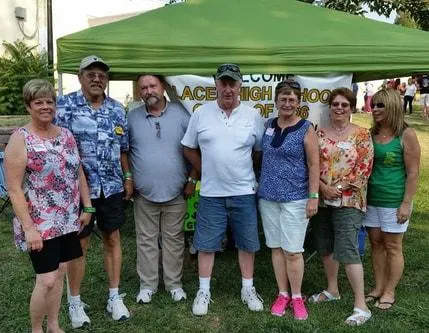
1897
Our Alumni
In 1897, the year Placer High School was established with only 17 students, William McKinley was inaugurated as the 25th president of the United States. Fifteen men competed in the first Boston Marathon. The Library of Congress Building opened in Washington, DC. The Klondike gold rush began. And several renowned Americans were born, including aviation pioneer Amelia Earhart, Nobel Prize winning author William Faulkner, and baseball player Lefty O’Doul.
For more than 125 years, Placer High has stood on the hill as witness to modern history. From the horrors of war to the promise of peace…economic depressions to dot-com booms… horse drawn carriages to space travel… and everything in between, Placer
graduates have been an integral part of local and world history. Graduates have gone on to serve in congress, as WWII aces, cutting-edge scientists, distinguished judges, professional athletes, media stars, business leaders, and so much more.
1930-1936
The Engle Era
Dr. John F. Engle became principal of Placer High School in 1906 and began a long and illustrious 30-year career in which the school expanded from five teachers in one rickety wooden building to an 800-student faculty boasting five buildings and the creation of a junior college. At the same time the high school developed a reputation throughout the state as one of the finest secondary institutions of the Placer High School District which extended from Loomis to Lake Tahoe.
Several landmark buildings were added during Engle’s stay as principal. During the 1906-07 school years the original Sierra College wooden building was torn down and replaced
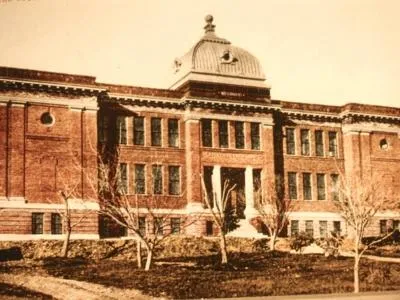
1906 Upper Campus Building
by a $40,000 building. The new building was a substantial brick structure consisting of 22 rooms on four levels, including a basement, and a large tin dome. Heating was by an automatic system which regulated both temperature and ventilation in every room. Within a few years statuary, pictures, and potted plants were added to beatify the interior of the school. The library was considered one of the finest in Northern California and the collection of American history in the History department was the best in Northern California.
In 1909 shower baths and lockers for the Athletes were installed downstairs in the new building. In the next few years tennis courts were finished on the site of the old wooden building and a football field and track were installed. By 1918 the school showcased a large wooden gymnasium with sideline seating and a stage. The year 1926, however marked the beginning of a new era for Placer when the music/auditorium and science wings were added and the brick building was plastered over to match the architectural style of the two new wings. The auto shop and bus shed building along Agard Street were also constructed at this time. Ten years later, building began on Placer Junior College buildings, gym and athletic field during the final year of Engle’s administration, 1936.
Athletics began to have an impact on the school during Engle’s tenure as well. In addition of a young coach from the University of California, Earl Crabbe, enabled the girls’ and boys’ basketball teams to create a dynasties of legendary significance. Between 1916 and 1920 his girls’ basketball team went 41-1 winning 37 games in succession at one point, compiling four straight undefeated seasons. Beginning in 1923 his boys’ basket ball teams won 16 out of 17 league championships, including 12 in a row. Crabbe also coached his men to eight Central California titles in 13 appearances.
Engle was at the helm as a student endured the tragedy of World War I when a junior Red Cross Club was organized on campus with girls learning to make surgical dressings and the entire school donating over $500 to a war drive. The Engle years also saw the formation of the first high school cadet corps in the State of California under the direction of Captain Fred S. Roumage, a National Guard officer and later captain in France in World War I.
The year 1914 marked the birth of the Placer High School district, thus again changing the names of the school to Placer High School. That same year college level classes were revived after having disappeared several years earlier. However, due to the enrollment drain caused by World War I, the junior college was abandoned by 1920.
Certain ceremonies were now becoming traditional such as the Freshman Reception, the Christmas Jinx, the Junior Prom, the Senior Ball, Senior Picnic, and the Graduation and Alumni Dance. Participation in clubs and organization also grew, beginning with the Agricultural Science Organization which became the Future Farmers of America, the oldest club in existence. During the period of time the Placer Band came into prominence under the guidance of Otto Fox, entertaining the school and the community at various concerts and public performances.
Academics also took on prominence during the Engle principalship. A four year curriculum became the norm with students tracked into Classical, Scientific, or Commercial fields of study. All paths were stiffly challenging with semester finals a dreaded period of time for the students. Miscreant students were dealt with severely and Detention became an unwelcome punishment. Still, Engle and his vice-Principal E.F. Waldo were highly respected by the students and could be seen attending various cultural, social and Athletic events at the school.
OUR FOCUS
FOUNDATION FOUCS: OUR IMPACT AREAS

ACADEMICS
We empower students, faculty, and staff for enhanced learning through grants, tech initiatives, and scholarships, propelling them into a successful future beyond high school.

ATHLETICS
Hillmen Foundation fuels athletic achievements through grants, enhancing safety, facilities, and community fitness.

ACTIVITIES
We foster holistic education by supporting diverse activities through grants, enriching students' experiences beyond the classroom.

ALUMNI
Placer High's rich history shines through alumni activities, fostering a strong network connecting generations and the community.

SPECIAL PROJECTS & INITIATIVES
Placer High's prime Auburn location fuels community growth, enhancing facilities and programs through strategic grants.
GET INVOLVED
Grants
Students, faculty and staff apply for and receive educational grants for a wide range of needs that are typically not covered by state funding. Every year, thousands of dollars are granted to enrich academics, athletics and activities that directly benefit students, our feeder schools, and community. Examples of these grants include support for:
ACADEMICS

Art Equipment and Materials
3-D Printers
Math Materials, including Specialized Calculators
Band Instruments & Uniforms
Programs for At-Risk Students
DNA Lab Materials
Science Equipment
Field Trips
Microprocessor Kits
Music & Drama Materials
Performing Arts Sound & Lighting Equipment
Journalism Dept. Materials
Special Education Enterprise Programs
Photo Lab Equipment, including Cameras, Lenses, and Filters
AVID Program
Special Curriculum & Materials for Every Department
Career Tech Equipment, including Welding Machines
World (Foreign) Language Programs
Peer Counseling Program
VAULT Program
Faculty Continuing Education
ATHLETICS
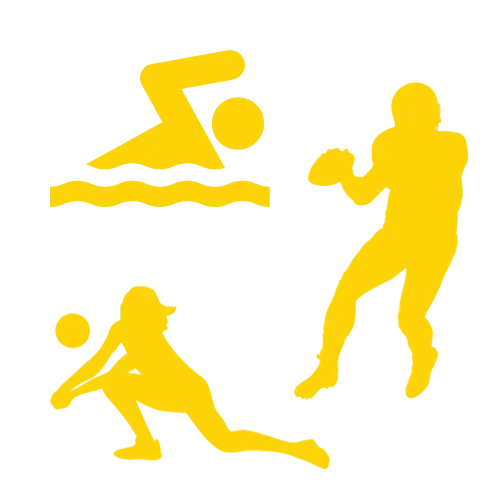
General / Multi Athletic Teams
Soccer
Basketball
Tennis
Track & Field
Wrestling
Football
Cross Country
Ski / Snowboard
Volleyball
ACTIVITIES

Assemblies
Grad Night
Enrichment Events
Dance Team
Campus Clubs
Special Programs for Middle & Elementary School Students
Eagle Scout Projects
Community Service Endeavors
Career Day Projects
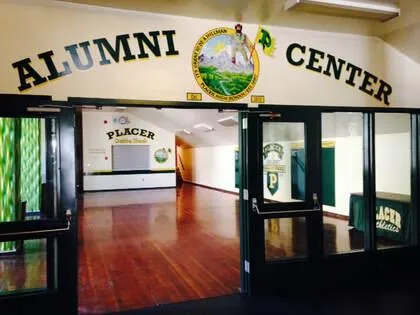
ALUMNI

Grants for alumni programs help highlight distinguished graduates and their impact in the community and world, as well as connect Hillmen of all ages to their alma mater. These grants include:
- Alumni Bricks Courtyard
- Alumni Center
- All Class Reunion
- Centennial Celebration
- Placer Hall of Fame
- Athletic Hall of Fame
- Central Square Tiles in Memory of our Founder Jug Covich and Long-time Board member/Distinguished Alumni Ty Rowe

SPECIAL CAPITAL PROJECTS & INITIATIVES

Special grants for capital improvements or other major initiatives that enhance both the school and community are a significant hallmark of the Foundation’s work over the past three decades. Here are examples:
- Campus Gateway Centennial Arch
- Iron Hillmen Sculpture Base
- Athletic Complex Campaign
- All Weather Track
- Stadium Scoreboard
- Stadium Sound System & Speakers
- Stadium Lights
- Stadium Snack bar Roof
- Sherbina Water Fountain Restoration
- Press Box Renovation
- Track Walkway
- Earl Crabbe Gym Snack Shack
The Hillmen Foundation strives to connect our alumni with their classmates and the school that launched the lives of generations of Auburn teens.
● The new Alumni Center in the Earl Crabbe Gym reminds visitors of the Hillmen legacy of achievement in our community and world.
● We are proud supporters of the Placer Hall of Fame and the Placer Athletic Hall of Fame, honoring distinguished graduates, faculty, staff, and coaches.
● Grants to the widely-attended All-Class Reunions and Centennial Celebration united Hillmen of all ages and brought economic benefit to the entire community.
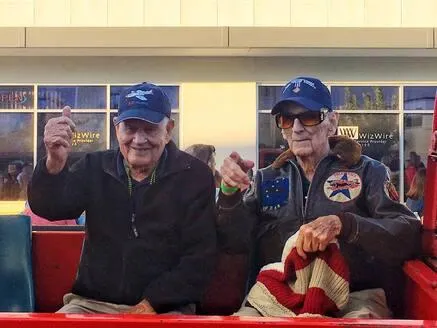
Clarence "Bud" Anderson and Dean "Diz" Laird
● Our special events, such as the popular Hillmen Tailgater in Central Square, have honored Hillmen Heroes like WWII fighter aces Clarence “Bud” Anderson and Dean “Diz” Laird (both class of 1939), and served as a mini-reunion for graduates and friends.
● Individual class reunions are also supported by The Hillmen Foundation, including maintaining a master list of graduates by class.
WE CANNOT DO IT WITHOUT YOU!
YOUR FINANCIAL IMPACT
Every donation, regardless of size, will positively impact Placer High students, our community, and life on the Hill. All contributions to
the Hillmen Foundation are tax deductible in accordance with state and federal tax laws.
$1,110,990
TOTAL IMPACT AS OF OCTOBER 31, 2025, INCLUDING...
$778,265
GRANTS PROGRAMS, INCLUDING...
$234,744
ACADEMICS
$122,817
ATHLETICS
$87,171
ACTIVITIES
$28,724
ALUMNI
$304,809
SPECIAL PROJECTS & INITIATIVES
SCHOLARSHIP PROGRAM*
$332,725
TOTAL AWARDED
31
CURRENT SCHOLARSHIP OPPORTUNITIES
$41,000
FOR 2025 GRADS
*Scholarships include Foundation-sponsored and Endowments with the Hillmen Foundation
In the best of times, in the worst of times, at all times… It’s great to be a Hillman!
OUR MISSION
The purpose of the Hillmen Foundation is to support Placer High School in the areas of academics, student activities, and athletics, including the staff, students, and alumni endeavors of the school; to stimulate gifts of service, endowments, and bequests; and to maintain an association of persons interested in Placer High School.
FOCUS
Academics
Athletics
Activities
Alumni
Special Projects & Initiatives
Copyright ©2023 All rights reserved
NEWS AND EVENTS
Fresh Updates Await Your DISCOVERY
Explore Placer High School's vibrant academics, activities, and athletics, keeping you connected to the staff, students, and valued alumni, uniting a passionate community supporting the school.

Five Ways to Maximize Your Benefits
Charitable giving offers individuals a meaningful way to support causes while also providing opportunities for tax savings. While the following is not a comprehensive list of all charitable tax planning opportunities, it does provide some very useful ideas.
1. Itemizing Deductions
Taxpayers can deduct donations to qualified charities if they itemize deductions on their tax return. In 2024, the standard deduction amounts to $13,850 for single filers and $27,700 for married couples filing jointly. The standard deductions amounts are slightly higher for those over 65 years of age. For those whose total deductions, including charitable contributions, exceed the standard deduction, itemizing can lead to significant tax savings.
It’s important to remember that only donations made to eligible organizations qualify for a deduction. Contributions to political campaigns or individuals are not deductible. Donors should retain receipts and other documentation for any contributions exceeding $250, as required by the IRS.
2. Donating Appreciated Assets
Instead of cash, donating appreciated assets like stocks or real estate offers dual tax benefits. First, the donor avoids paying capital gains taxes on the asset’s appreciation. Second, they receive a charitable deduction for the fair market value of the asset on the date of donation, provided they’ve owned the asset for more than one year.
This strategy is particularly effective for individuals with large gains in their investment portfolios, as it can minimize their overall tax liability while making a substantial charitable impact.
3. Transfers Directly from an IRA
If you are age 73 or older, you must take RMDs (required minimum distributions) from your individual retirement accounts. These distributions count as taxable income. You can transfer your RMD directly to a qualified charity and avoid the tax.
Even though RMDs don’t start until age 73, direct donations from your IRA are allowed beginning at age 70 ½. You can make a Qualified Charitable Distribution (QCD) up to a maximum amount of $105,000 in 2024 directly from your IRA to a qualified nonprofit organization. This strategy is especially beneficial for those who do not itemize deductions, as it provides a way to gain a tax benefit while supporting charitable organizations.
4. Bunching Contributions
With the increased standard deduction, many taxpayers may find it challenging to itemize each year. A solution to this is “bunching” contributions—concentrating several years’ worth of charitable donations into one year to exceed the standard deduction threshold. This strategy allows the taxpayer to itemize in the year of the donation and take the standard deduction in subsequent years.
A donor-advised fund (DAF) is a helpful tool for bunching. Donors can make a large, tax-deductible contribution to the DAF in one year. Then, they can recommend distributions from the funds to preferred charities over several years.
5. Corporate Matching Programs
Individuals who work for companies with charitable matching programs can double the impact of their donations without doubling their own financial outlay. Individuals should explore any employer-sponsored programs to maximize their contributions and potential tax benefits.
Conclusion
Charitable giving not only fosters social good but also provides opportunities for strategic tax planning. By leveraging itemized deductions, donating appreciated assets, utilizing QCDs, and implementing bunching strategies, individuals can enhance both their philanthropy and their tax efficiency.
Note: This material has been prepared for informational purposes only, and is not intended to provide and/or should not be relied on for, tax, legal or accounting advice. You should consult your own tax, legal and accounting advisors before engaging in any transaction.The Hillmen Foundation is a 501c3 California nonprofit organization. All gifts are tax deductible as allowed. Tax ID #68-0168995.
$825,375
TOTAL IMPACT TO DATE, INCLUDING...
$594,650
GRANTS PROGRAMS, INCLUJDING...
$160,469
ACADEMICS
$70,105
ATHLETICS
$34,531
ACTIVITES
$24,736
ALUMNI
$304,809
SPECIAL PROJECTS & INITIATIVES
SCHOLARSHIP PROGRAM*
$230,725
TOTAL AWARDED
17
CURRENT SCHOLARSHIP OPPORTUNITIES
$29,750


